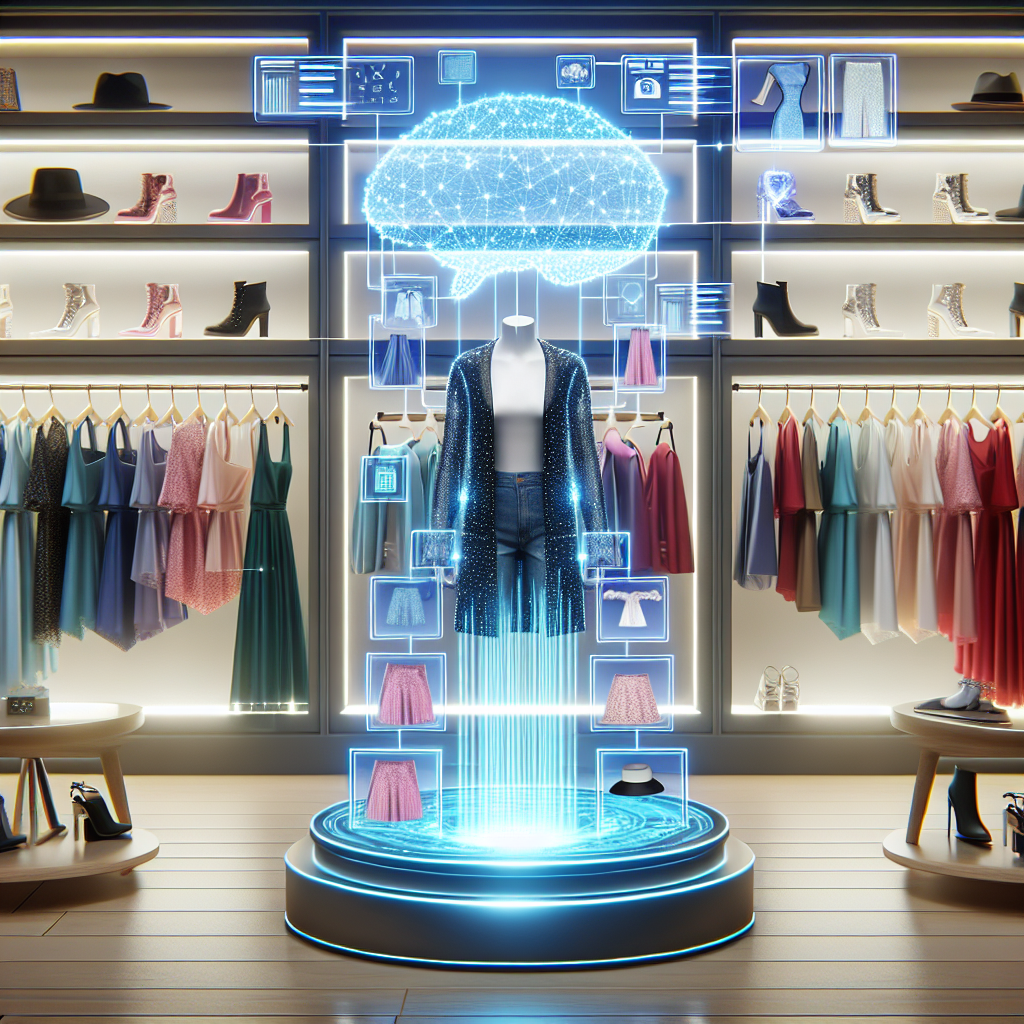The Role of AI in Fashion Merchandising
In recent years, the fashion industry has seen a significant shift towards the use of artificial intelligence (AI) in various aspects of the business, including merchandising. AI has the potential to revolutionize the way fashion brands manage their inventory, predict trends, and personalize the shopping experience for customers. In this article, we will explore the role of AI in fashion merchandising and how it is changing the way brands operate in today’s digital age.
What is AI in Fashion Merchandising?
AI in fashion merchandising refers to the use of artificial intelligence technologies to help retailers make better decisions about what products to stock, when to stock them, and how to price them. AI algorithms can analyze vast amounts of data, such as sales history, customer preferences, social media trends, and market trends, to provide insights that can help retailers optimize their merchandising strategies.
One of the key ways AI is used in fashion merchandising is through demand forecasting. By analyzing historical sales data and external factors such as weather, economic conditions, and social media trends, AI algorithms can predict future demand for certain products. This can help retailers avoid overstocking or understocking, leading to better inventory management and increased profitability.
Another way AI is used in fashion merchandising is through trend analysis. AI algorithms can analyze social media posts, fashion blogs, and other online content to identify emerging trends and popular styles. This information can help retailers stay ahead of the curve and offer products that are in high demand among consumers.
How AI is Changing the Fashion Merchandising Landscape
AI is transforming the fashion merchandising landscape in several ways. One of the most significant changes is the ability of AI to personalize the shopping experience for customers. By analyzing customer data, such as purchase history, browsing behavior, and social media interactions, AI algorithms can recommend products that are tailored to each individual’s preferences. This can lead to higher conversion rates and increased customer loyalty.
AI is also helping retailers optimize their pricing strategies. By analyzing competitive pricing data, consumer demand, and other factors, AI algorithms can recommend optimal pricing strategies that maximize revenue and profit margins. This can help retailers stay competitive in an increasingly crowded market and avoid pricing mistakes that can lead to lost sales.
Additionally, AI is helping retailers improve their inventory management practices. By analyzing sales data, supply chain information, and other factors, AI algorithms can help retailers optimize their inventory levels, reduce stockouts, and minimize excess inventory. This can lead to reduced costs, improved cash flow, and a more efficient supply chain.
FAQs
Q: How can AI help retailers predict trends in the fashion industry?
A: AI algorithms can analyze vast amounts of data, such as social media trends, fashion blogs, and sales data, to identify emerging trends and popular styles. This information can help retailers stay ahead of the curve and offer products that are in high demand among consumers.
Q: How can AI personalize the shopping experience for customers?
A: By analyzing customer data, such as purchase history, browsing behavior, and social media interactions, AI algorithms can recommend products that are tailored to each individual’s preferences. This can lead to higher conversion rates and increased customer loyalty.
Q: How can AI help retailers optimize their pricing strategies?
A: By analyzing competitive pricing data, consumer demand, and other factors, AI algorithms can recommend optimal pricing strategies that maximize revenue and profit margins. This can help retailers stay competitive in an increasingly crowded market and avoid pricing mistakes.
Q: How can AI help retailers improve their inventory management practices?
A: By analyzing sales data, supply chain information, and other factors, AI algorithms can help retailers optimize their inventory levels, reduce stockouts, and minimize excess inventory. This can lead to reduced costs, improved cash flow, and a more efficient supply chain.
In conclusion, AI is playing an increasingly important role in fashion merchandising, helping retailers make better decisions about inventory management, trend forecasting, pricing strategies, and customer personalization. As the fashion industry continues to evolve in the digital age, AI will be a key tool for brands looking to stay ahead of the competition and meet the changing needs of today’s consumers.

